Class 7 Social Science Chapter 9 Worksheet Solutions - From the Rulers to the Ruled: Types of Governments
| Table of contents |

|
| Multiple Choice Questions (MCQs) |

|
| Fill in the Blanks |

|
| Very Short Answer Questions |

|
| Short Answer Questions |

|
| Match the Following |

|
Multiple Choice Questions (MCQs)
Q1: What does the term ‘democracy’ mean?
a) A government where one person has all the power
b) A government run by religious leaders
c) A government run by the people
d) A government controlled by military force
Ans: c) A government run by the people
Democracy means "rule of the people," where the people are the source of power, and they elect representatives to make decisions.
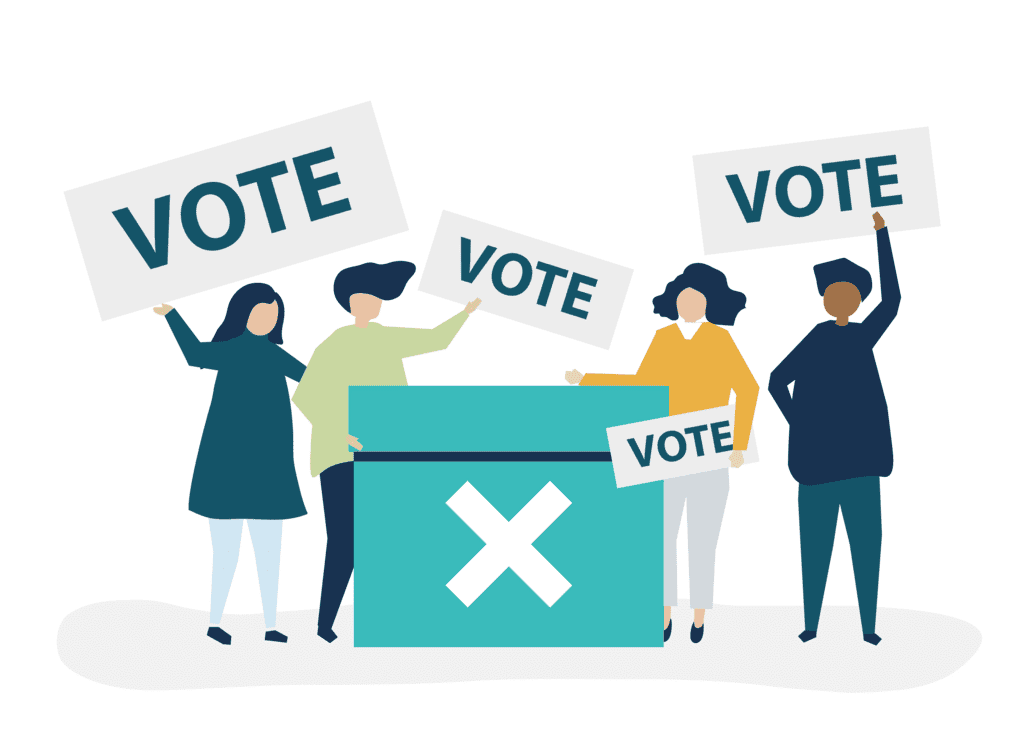
Q2: What is the main function of a democratic government?
a) To provide a king with wealth
b) To ensure people’s safety and welfare
c) To limit people’s freedoms
d) To create military power
Ans: b) To ensure people’s safety and welfare
A democratic government’s primary function is to ensure law, order, and the well-being of all citizens.
Q3: Which is a characteristic of a representative democracy?
a) Every citizen directly makes laws
b) Citizens elect representatives to govern
c) A king or queen makes all the decisions
d) The government has no interaction with citizens
Ans: b) Citizens elect representatives to govern
In a representative democracy, citizens vote for representatives who then make decisions on their behalf.
Q4: In which type of government does the king or queen have complete control?
a) Democracy
b) Monarchy
c) Theocracy
d) Dictatorship
Ans: b) Monarchy
In a monarchy, the king or queen rules the country, often with absolute power, especially in an absolute monarchy.
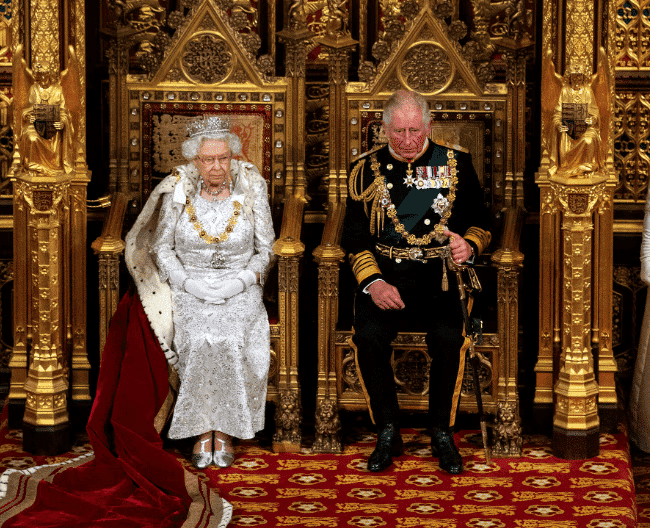 Monarchy
Monarchy
Q5: What is the primary role of the judiciary in a democracy?
a) To create laws
b) To enforce laws
c) To ensure that laws are followed and settle disputes
d) To make military decisions
Ans: c) To ensure that laws are followed and settle disputes
The judiciary ensures that laws are followed and resolves disputes according to the law.
Q6: In which type of government are rulers chosen by religious leaders?
a) Democracy
b) Monarchy
c) Theocracy
d) Dictatorship
Ans: c) Theocracy
A theocracy is a government ruled by religious leaders or based on religious laws.
Q7: Which of the following is NOT a principle of democracy?
a) Equality
b) Freedom of speech
c) Separation of powers
d) Rule by one leader
Ans: d) Rule by one leader
In a democracy, power is shared, and it does not rely on one person ruling alone.
Q8: What is the main difference between parliamentary and presidential democracy?
a) In parliamentary democracy, the president is elected
b) In presidential democracy, the president is elected separately
c) In parliamentary democracy, there is no separation of powers
d) In presidential democracy, the prime minister is the head of the state
Ans: b) In presidential democracy, the president is elected separately
In presidential democracy, the president is elected independently of the legislature, whereas in parliamentary democracy, the executive (prime minister) is part of the legislature.
Q9: Which system of government has a ruler who has absolute power?
a) Democracy
b) Monarchy
c) Dictatorship
d) Oligarchy
Ans: c) Dictatorship
In a dictatorship, one person or a small group holds all the power, often not bound by laws.
Q10: What is the role of citizens in a representative democracy?
a) To create laws
b) To elect representatives who make decisions for them
c) To follow orders from a king
d) To control the economy
Ans: b) To elect representatives who make decisions for them
In a representative democracy, citizens elect leaders to represent them in government.
Fill in the Blanks
Q1: In a __________, the people elect representatives to make decisions on their behalf.
Ans: Representative democracy
In representative democracy, people elect representatives to make laws and decisions for them.
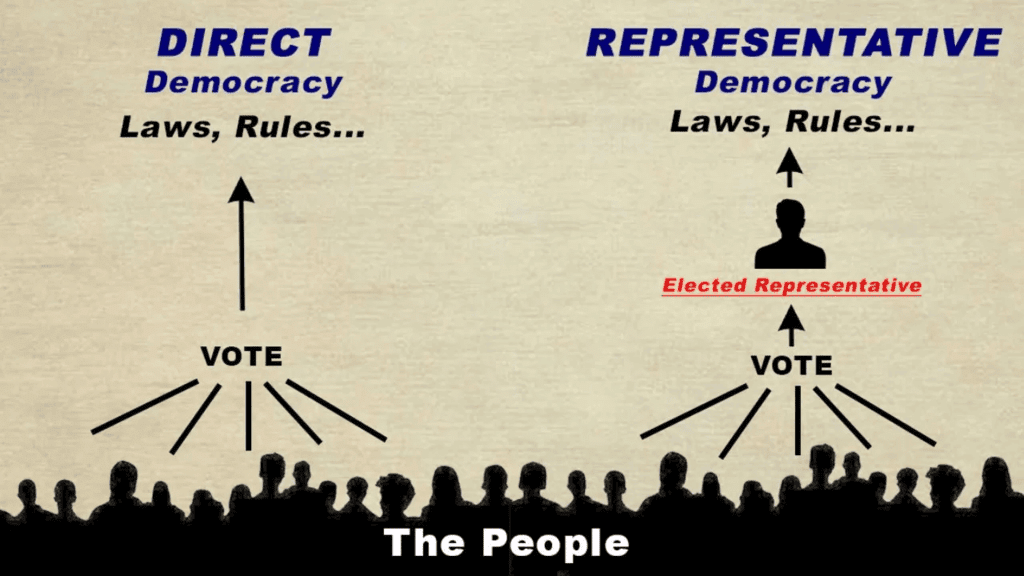 Difference: Direct and Representative Democracy
Difference: Direct and Representative Democracy
Q2: A __________ government is ruled by religious leaders or based on religious laws.
Ans: Theocracy
Theocracy is a system of government where religious leaders hold political power.
Q3: The __________ is the branch of government responsible for enforcing laws.
Ans: Executive
The executive branch of government is responsible for implementing and enforcing laws.
Q4: In a __________ monarchy, the king’s power is limited by a constitution or laws.
Ans: Constitutional
A constitutional monarchy limits the power of the monarch, giving more control to elected officials.
Q5: __________ is a form of government where power is held by one person or a small group.
Ans: Oligarchy
Oligarchy is a government system where a small group of wealthy or powerful people control the country.
Q6: __________ is a system of government where the king or queen has complete control.
Ans: Absolute monarchy
An absolute monarchy is a form of government where the monarch holds complete control and power.
Q7: __________ refers to the right of every adult to vote in elections.
Ans: Universal adult franchise
Universal adult franchise ensures that every adult citizen has the right to vote in elections.
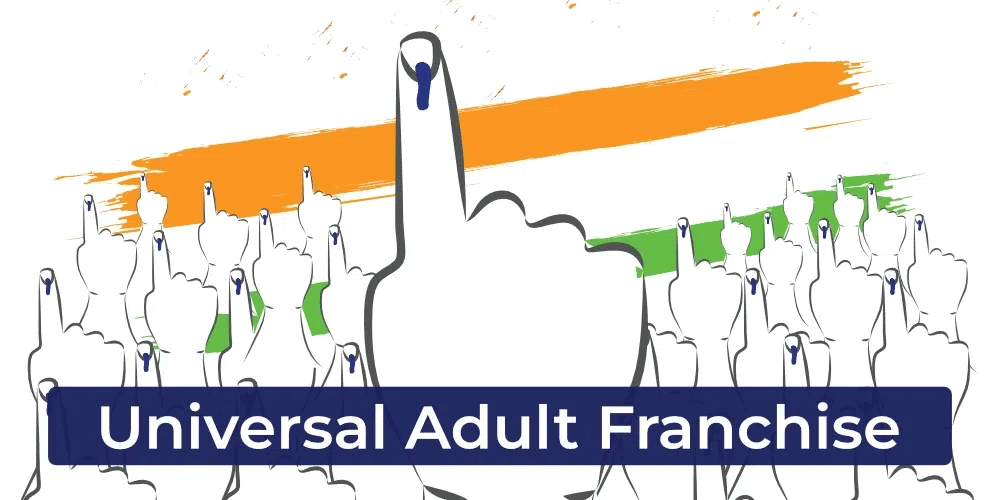
Q8: The __________ is the group responsible for making laws in a democracy.
Ans: Legislature
The legislature is the body responsible for creating laws in a democracy.
Q9: In a __________ democracy, all citizens directly participate in making laws and decisions.
Ans: Direct
In direct democracy, all citizens actively participate in making decisions and laws.
Q10: The __________ ensures that laws are followed and resolves legal disputes in a democracy.
Ans: Judiciary
The judiciary interprets and applies laws, ensuring fairness in the legal system.
Very Short Answer Questions
Q1: What is democracy?
Ans: Democracy is a system of government where the people have the power to elect their leaders.
Q2: What is the role of the executive in a democracy?
Ans: The executive enforces the laws and manages the day-to-day functions of the government.
Q3: Which type of government allows the people to vote for their leaders?
Ans: Democracy.
Q4: What is the purpose of the judiciary in a democracy?
Ans: The judiciary ensures that laws are followed and resolves disputes.
Q5: What is an oligarchy?
Ans: An oligarchy is a form of government where a small, powerful group controls the government.
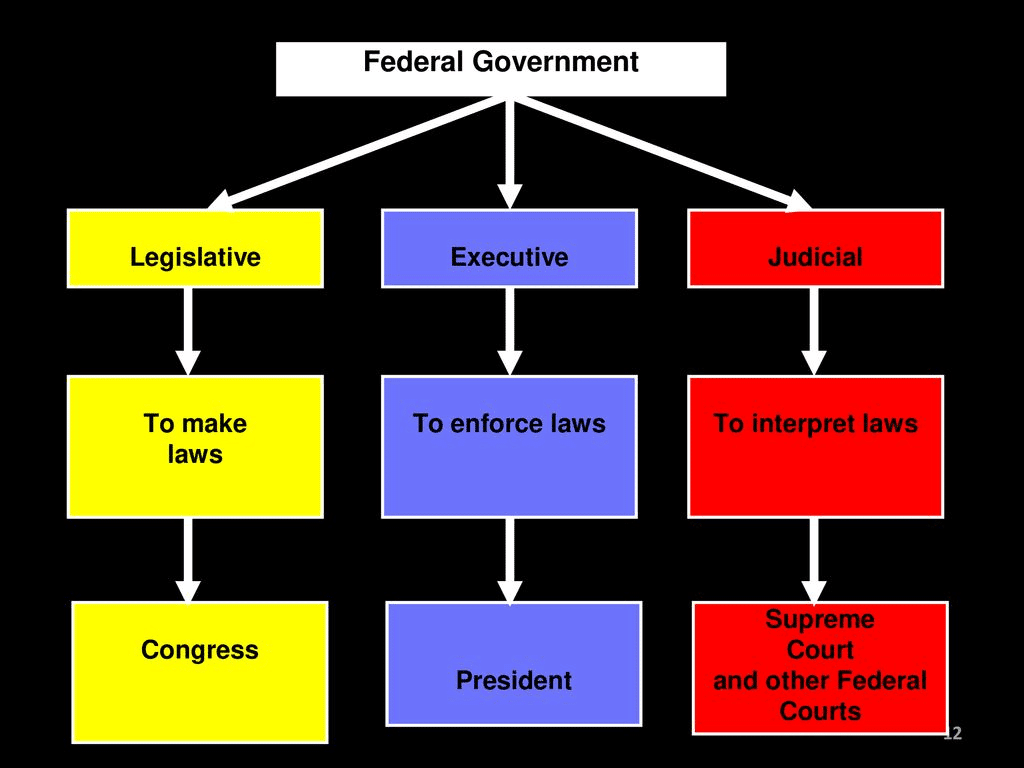
Short Answer Questions
Q1: What are the three main functions of government in a democracy?
Ans: The three main functions are legislative (making laws), executive (enforcing laws), and judicial (ensuring laws are followed and resolving disputes).
Q2: How does a monarchy differ from a democracy?
Ans: In a monarchy, a king or queen rules the country, often with hereditary power, while in a democracy, leaders are elected by the people.
Q3: What is the difference between direct and representative democracy?
Ans: In direct democracy, citizens directly make decisions and laws, while in representative democracy, citizens elect representatives to make decisions on their behalf.
Q4: What is meant by "universal adult franchise"?
Ans: Universal adult franchise means that every adult citizen has the right to vote in elections, regardless of their social or economic status.
Q5: How did the Chola period influence democracy in ancient India?
Ans: The Chola period included a system where local assemblies and councils were elected by citizens, influencing the development of democratic governance in India.
Match the Following
(Match Column A with the correct option in Column B)
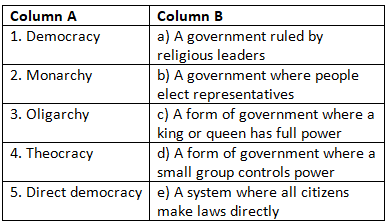
Ans: Matched Pairs and Explanations:
- 1 → b: Democracy is a government where people elect representatives.
- 2 → c: Monarchy is a government ruled by a king or queen, sometimes with absolute power.
- 3 → d: Oligarchy is a government controlled by a small, powerful group of people.
- 4 → a: Theocracy is a government ruled by religious leaders and based on religious principles.
- 5 → e: Direct democracy is where all citizens directly make decisions and laws.
|
1 videos|107 docs
|
FAQs on Class 7 Social Science Chapter 9 Worksheet Solutions - From the Rulers to the Ruled: Types of Governments
| 1. What are the different types of governments discussed in "From the Rulers to the Ruled"? |  |
| 2. How does a democracy differ from a dictatorship according to the article? |  |
| 3. What role do citizens play in different types of governments mentioned in the article? |  |
| 4. Can you explain the concept of an oligarchy as described in the article? |  |
| 5. What historical examples are provided in the article to illustrate different types of governments? |  |
















